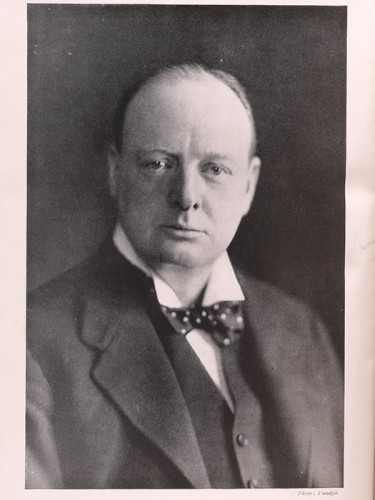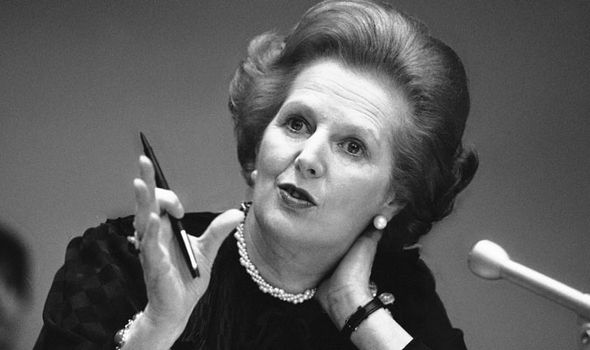That Hideous Strength by C. S. Lewis
by C. S. Lewis
—-
This was the first thing Mark had been asked to do which he himself, before he did it, clearly knew to be criminal. But the moment of his consent almost escaped his notice; certainly, there was no struggle, no sense of turning a corner. There may have been a time in the world’s history when such moments fully revealed their gravity, with witches prophesying on a blasted heath or visible Rubicons to be crossed. But, for him, it all slipped past in a chatter of laughter, of that intimate laughter between fellow professionals, which of all earthly powers is strongest to make men do very bad things before they are yet, individually, very bad men.
Mark Studdock is a young on-the-make sociologist, a professor at Bracton College, in an English town called Edgestow. He is is far more interested in university politics than in his research or teaching. and as a member of the “progressive element” at the college, he strongly supports Bracton selling a tract of property to a government-sponsored entity called NICE. The NICE is the National Institute for Coordinated Experimentation,which Lewis describes as “the first fruits of that constructive fusion between the state and the laboratory on which so many thoughtful people base their hopes of a better world.” What excites Mark most about the NICE is this:
The real thing is that this time we’re going to get science applied to social problems and backed by the whole force of the state, just as war has been backed by the whole force of the state in the past. One hopes, of course, that it’ll find out more than the old freelance science did, but what’s certain is that it can do more.
Trigger Warning: There is something in this book to offend almost everybody. It contains things that will offend technologists and believers in human progress…social scientists…feminists…academic administrators…bioscience researchers…and surely many other categories of people. It will probably also offend some Christians, for the way in which Christian theology is mixed with non-Christian magic. By the standards now becoming current in American universities, this book, and even this book review, should be read by no one at all. But for those who do not accept those standards…
The Basic Story. Mark has recently married Jane, a woman with strong literary interests and with vague plans for getting an advanced degree. She has recently started having disturbing, indeed terrifying, dreams, which suggest that she has a clairvoyant ability to see distant events in real time. Afraid that she is losing her mind, Jane seeks advice, and is told that her dreams are actually visions, they are very real, will not stop, and are of utmost importance:
“Young lady,” said Miss Ironwood, “You do not at all realize the seriousness of this matter. The things you have seen concern something compared with which the happiness, and even the life, of you and me, is of no importance.”
Miss Ironwood warns Jane that extremely evil people will seek to use her gift, and that she would do well–both for her own interests and those of the entire human race–to join the community of which Miss Ironwood is a part, located at a place called St Anne’s. Jane responds quite negatively to the invitation, afraid that membership in the St Anne’s group will limit her autonomy. She is not interested in the dreams’ meaning; she just wants them to go away.
Mark, on the other hand, responds enthusiastically when he is invited to take a position at the NICE, temporarily located at an old manor called Belbury. One of the first people he meets there is the Head of the Institutional Police, a woman named Miss Hardcastle (picture Janet Napolitano), nicknamed the Fairy, who explains to Mark her theory of crime and punishment:
“Here in the Institute, we’re backing the crusade against Red Tape.” Mark gathered that, for the Fairy, the police side of the Institute was the really important side…In general, they had already popularized in the press the idea that the Institute should be allowed to experiment pretty largely in the hope of discovering how far humane, remedial treatment could be substituted for the old notion of “retributive” or “vindictive” punishment…The Fairy pointed out that what had hampered every English police force up to date was precisely the idea of deserved punishment. For desert was always finite; you could do so much to the criminal and no more. Remedial treatment, on the other hand, need have no fixed limit; it could go on till it had effected a cure, and those who were carrying it out would decide when that was. And if cure were humane and desirable, how much more prevention? Soon anyone who had ever been in the hands of the police at all would come under the control of the NICE; in the end, every citizen.
Another person Mark meets in his first days at Belbury is the acclaimed chemist William Hingest…who has also come down to investigate the possibility of a job at Belbury, has decided against it, and strongly advises Mark to do likewise:
“I came down here because I thought it had something to do with science. Now that I find it’s something more like a political conspiracy, I shall go home. I’m too old for that kind of thing, and if I wanted to join a conspiracy, this one wouldn’t be my choice.”
“You mean, I suppose, that the element of social planning doesn’t appeal to you? I can quite understand that it doesn’t fit in with your work as it does with sciences like Sociology, but–“
“There are no sciences like Sociology. And if I found chemistry beginning to fit in with a secret police run by a middle-aged virago who doesn’t wear corsets and a scheme for taking away his farm and his shop and his children from every Englishman, I’d let chemistry go to the devil and take up gardening again…I happen to believe that you can’t study men, you can only get to know them, which is quite a different thing. Because you study them, you want to make the lower orders govern the country and listen to classical music, which is balderdash. You also want to take away from them everything that makes life worth living and not only from them but from everyone except a parcel of prigs and professors.”
Nevertheless, Mark decides to remain at Belbury, and is drawn ever-deeper into its activities–which, as only those in the innermost circles of that organization realize, are not only consistent with the goals of the 20th-century totalitarianisms, but go considerably beyond them. The NICE seeks to establish a junction between the powers of modern science and those of ancient magic, accessing the latter by awakening the medieval wizard Merlin and using him for their purposes. At the same time, Jane–despite her reservations–becomes increasingly involved with the company at St Anne’s and is entranced with its leader, a Mr Fisher-King. (His name comes from the Wounded King in Arthurian legend.) The St Anne’s group is aware of the truth about NICE and its ultimate goals, and exists for the primary purpose of opposing and, hopefully, destroying that organization.
I will not here describe the war between the forces of Belbury and those of St Anne’s (in order to avoid spoilers), but will instead comment on the characters of some of the protagonists and some philosophically-significant events in the novel, with appropriate excerpts. Hopefully this will be enough to give a sense of the worldview that Lewis is presenting in this book.
Mark Studdock. His character is largely defined by his strong desire to be a member of the Inner Circle, whatever that inner circle may be in a particular context. The passage at the start of this review where Mark agrees to engage in criminal activity on Belbury’s behalf is proceeded by this:
After a few evenings Mark ventured to walk into the library on his own; a little uncertain of his reception, yet afraid that if he did not soon assert his right to the entree this modesty might damage him. He knew that the error in either direction is equally fatal.
It was a success. Before he had closed the door behind him all had turned with welcoming faces and Filostrato had said “Ecco ” and the Fairy, “Here’s the very man.” A glow of pleasure passed over Mark’s whole body.
That “glow of pleasure” at being accepted by the Belbury’s Inner Circle (what Mark then thinks is Belbury’s Inner Circle) is strong enough to overcome any moral qualms on Mark’s part about the actions he is being requested to perform. Lewis has written a great deal elsewhere about the lust for the Inner Circle, which in his view never leads to satisfaction but only to a longing for membership in another, still-more-inner circle. In That Hideous Strength, there are concentric Inner Circles at Belbury, which Mark does penetrate–and each is more sinister than the last.
Read more
by Peter Clarke.
, when he wrote:

